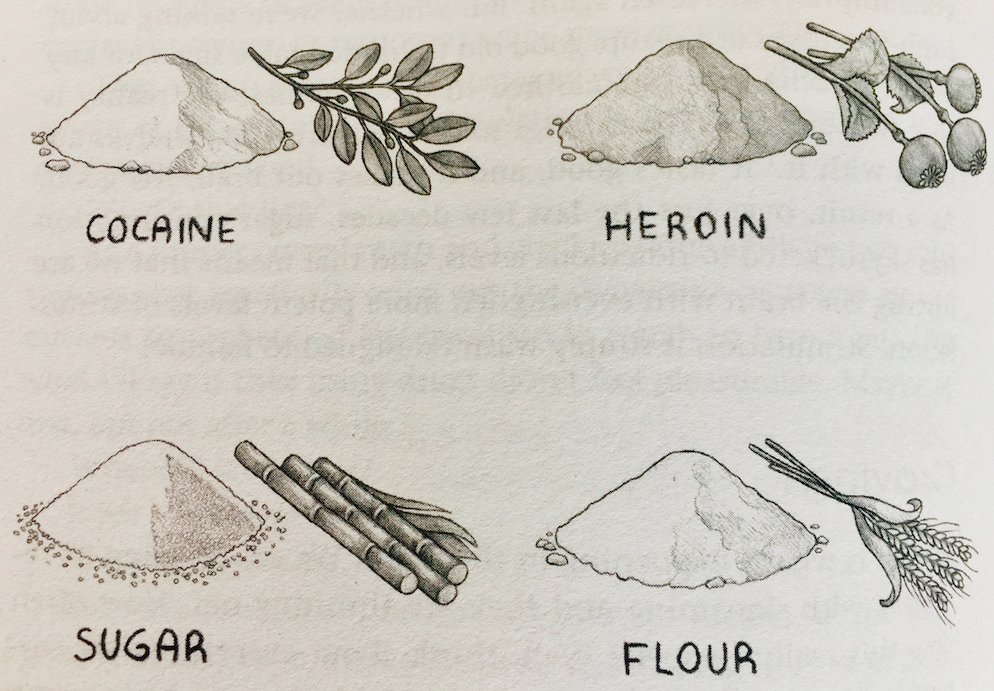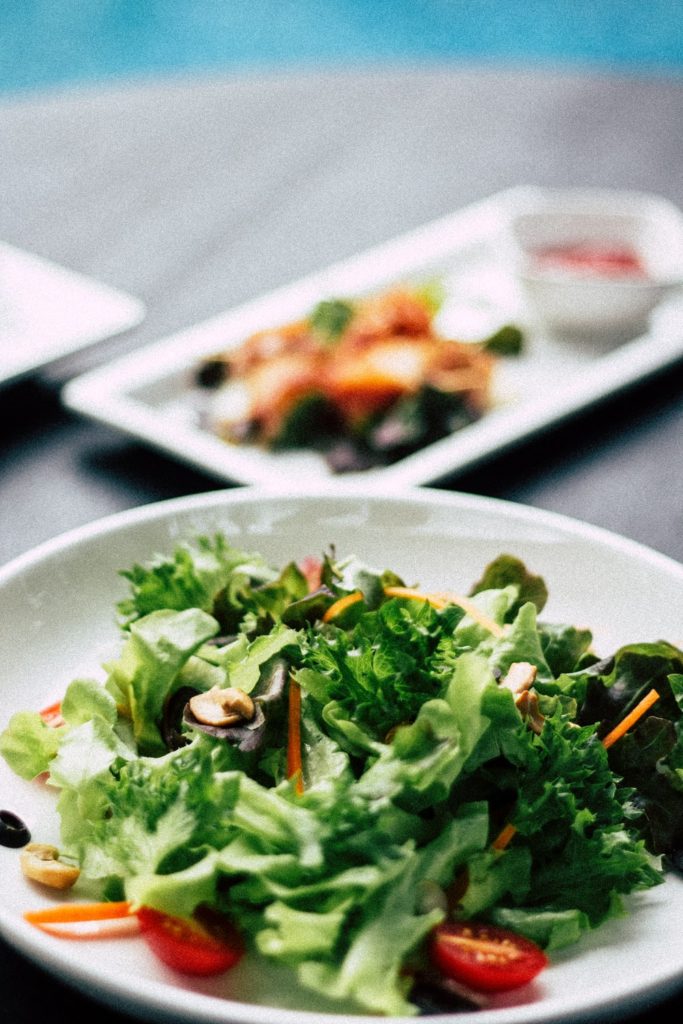Plant-based eating has now become a trend in the West, and that’s a good thing. As well as a bad thing. It needs to not be a passing fad, but rather, something that embeds itself deep into Western thinking – that a diet based around whole plants is absolutely and unavoidably necessary for health. And that a diet high in animal foods is not the diet of rich people who can afford meat, but the diet of unhealthy people. Establishing a healthy diet means plants – but it also means more than that. That’s what this post is about.
Majoring on Minors
One trap I see people falling into because of the sheer amount of health food information online – is majoring on minors. In this post, I have tried to bring out the four main keys to establishing a healthy diet. If you get these big stones into the glass, the smaller stones will more easily settle in around them. But if you fill the glass with small less important stones, these big stones won’t fit and you will not achieve your health goals as easily.
Some of the “minors” I see people worrying about is organic verses non-organic, exactly which brand of food is the best one, exactly which type of vinegar, salad dressing, breakfast cereal, bean or nut is best. While all these decisions can make a difference in some way, until the big four (below) are in place, it really isn’t much use worrying about them.
Conversely, once these four main things are firmly in place, the smaller things may not matter at all.
Step 1 – High in micronutrients
The first principle of healthy plant-based nutrition is about giving your body the highest number of micronutrients for the least number of calories. Not only will this give you the building blocks for your body to fix itself in a remarkable number of cases, but it will also allow it to move down (or up) towards its optimal size. Just make sure you are including in your diet each day:
- Green vegetables (cooked AND raw)
- beans (legumes)
- onions
- berries/fruit &
- seeds (or raw nuts)
That’s it! It’s so easy!
You can get a free 14-day checklist on these vital foods here at the pop-up form on this page. (Refresh the page if it has disappeared). Add them all into your current diet with the quantities suggested, and you are sure to feel a difference before the two weeks are up.
Step 2 – Don’t eat between meals
The second focus of plant-based nutrition may not be what you expect. But it is really important for ongoing health, particularly for adults. It is to eat at mealtimes only. That means no snacking, even on healthy foods. Get used to eating proper meals at mealtimes, eating only till satisfied, then stopping before feeling too full.
We get used to always being “full” in our culture, but giving our bodies breaks from digestion means they can start the catabolic phase of ‘cleaning out’ waste products from cell respiration. All day long chemical reactions are going on in our bodies, and waste products from those processes need to be removed or broken down. Just like you can’t clean your car while driving, we need to STOP to allow this to happen properly – and several times a day is best. That means, water only or herbal teas between meals, and at least a 3 ½ hr+ gap. Brush your teeth after a meal – and then stop eating.

Most people find this is not easy at first. It’s a mental battle – not just a physical need battle. But it gets easier with time. I find this the most difficult part of a healthy lifestyle, and find myself sliding slowly back into snacking between meals on ‘healthy things’. So I need a regular reset on this one.
If you suffer from hypoglycaemia, this step will appear impossible for you. Read more at <my blog post> how to get over this condition.
The overnight fast
Leave 12-13 hours between dinner and breakfast. Every two to three hours of extra fasting adds to positive effects (effecting insulin and hypoglycaemia). Fasting 13 hours overnight has been found to decrease breast cancer mortality by 21%. Giving your body a solid block of time every 24 hours to stop digesting is vital to good ongoing health.
Even eating a healthy diet does not mitigate the effects of eating too much, too often. With this step – stopping eating between meals and that includes between dinner and breakfast for over 12 hours, you can improve upon even healthy plant-based eating.
Step 3 – Cut out the rubbish
Getting the best out of a plant-based diet takes real change. It is counter-culture. And nothing is more counter-culture than this next essential step:
Step 3: Say ‘No’ to sugar and other sweeteners, oil, salt, processed baked goods and products made with white flour. They are disease-causing, addictive and lead to depression. By removing these things from your pantry, your health will improve more rapidly than you could ever expect.
This seems rather extreme and for some (always-been-normal-weight) people, a small amount of sugar or flour-based food won’t cause a problem. But for a growing number of people, these foods have become addictive. This makes them a trap. Once started, they can be hard to restrict. You will probably know if that is you – and that means, stopping them altogether may be necessary for you in establishing a healthy diet.
The addiction response
When a non-obese person eats sugar, the pleasure centres of the brain light up like a spotlight. It makes them feel great. But when an obese person eats the same amount of sugar, the pleasure centres of the brain barely register it – a lot more sugar is needed to get the same response. This dopamine-dependant system is the underlying cause of all addictions. Heroin, cocaine and other addictive substances – including white flour – have similar effects: more is constantly needed to give the same feeling of wellbeing – until a person has either damaged their health or become grossly overweight.

This is why processed foods are a trap. Processed foods have had part of the original whole food (usually water or fibre) removed, thus concentrating the part of the food that is left. It is this concentration that raises the neurotransmitter, dopamine, resulting in a good feeling.
Conversely, removing processed foods makes most people feel a bit low for a few days. Depressed even. This is a real physiological response. Those pleasure centres are not getting a hit any longer and a person feels ‘blue’. And they start searching the pantry for some chocolate or a biscuit or chips or crackers. That’s why removing these things from the house is often necessary to break this unhealthy habit. Until such a time as you feel pleasure from eating normal whole foods again, and no more need to imbibe on junk.
Food addiction is a real psychological issue. <This video> from Bright Line Eating describes the struggle and points to support and effective help for the growing number of food addicts today.
Step 4 – A salad a day – no excuses!
Now we come to the last step of establishing a healthy diet with plant-based nutrition. Replace one meal every day with a large salad. Use lettuce, carrot, cucumber and tomatoes if you wish, but don’t forget the raw cruciferous veggies shredded on top (eg. kale, cabbage, broccoli, radish), plus some onion and a sprinkle of seeds. Eat with 1/2 cup beans, lentils or tofu (plant-based protein) to keep you going. Add your favourite dressing.

The main thing to remember with salad is that green leafy vegetables are the main thing. I am not referring to potato salad, pasta salad, rice salad or Caesar salad full of bacon bits and cheese. We are talking about a green salad with other vegetables in it.
The green leaves may be
- lettuce (any type including the unfortunately maligned iceberg lettuce which is full of nutrients),
- spinach of any type
- kale
- various fresh herbs
- more uncommon or wild leafy vegetables like purslane or sorrel,
- sprouts or
- leaves of other vegetables.
The key is not to eat a salad a day, but to eat a salad as a meal replacement! A LARGE salad, in other words. Again, this is about the number of micronutrients. A person can get so many micronutrients in a salad that it is worth making it a daily focus.
It is almost like a salad is a catalyst for change. Summer – winter – you can get to love it in any season.
Going for lasting change
If you’re looking for more energy, better skin, lower chronic disease rates and longer life, and are ready for real lasting change – establishing a healthy diet in this way is the way to go.

The front page of my website says:
Moderation brings mediocre outcomes, relapses or no benefit at all. It is not effective treatment – it is the worst of both worlds. Give healing all you’ve got.
There is a world of health improvement out there – but moderation will keep it forever ‘out there’. Adopting these four keys to health will bring positive health changes ‘in here’ where it’s needed.



0 Comments